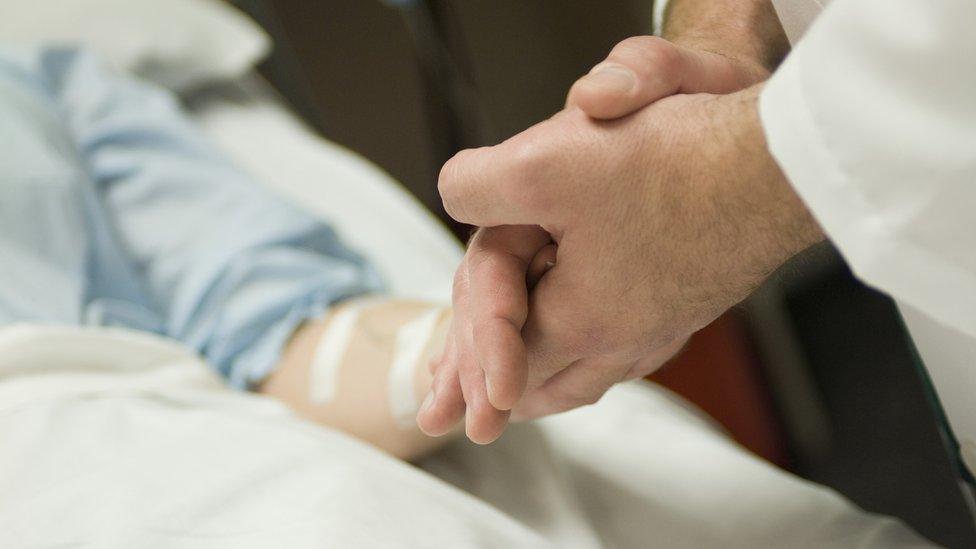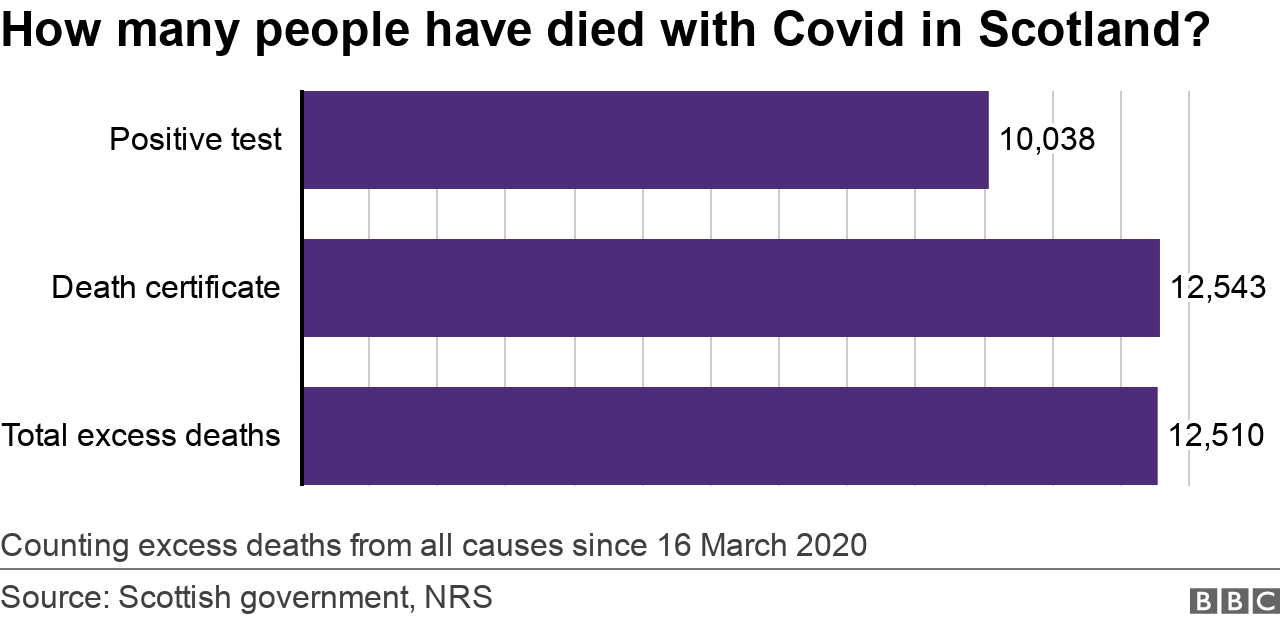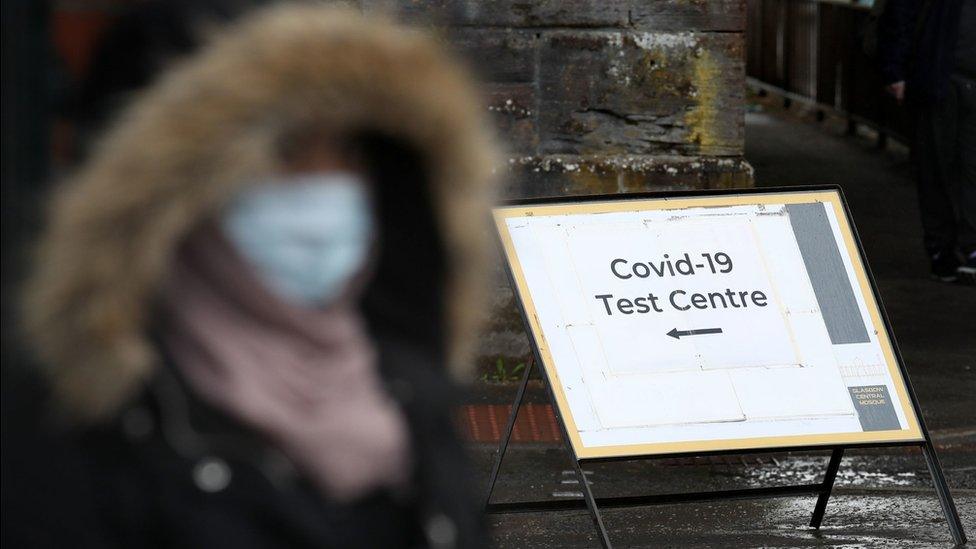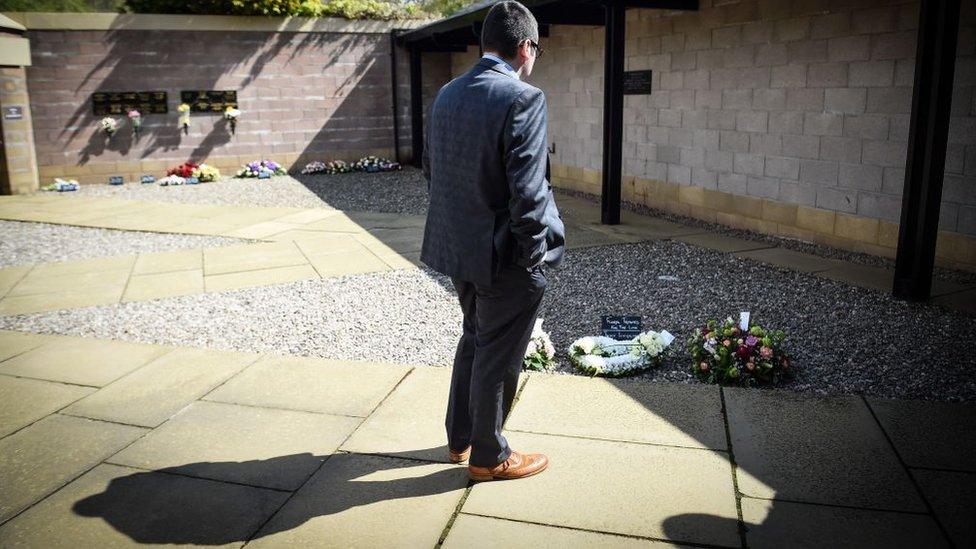Number of Covid deaths in Scotland passes 10,000
- Published

More than 10,000 people in Scotland have died within 28 days of testing positive for Covid, according to the latest figures.
Data published on Friday showed that another 41 deaths linked to the virus had been recorded the previous day, bringing the total to 10,038.
These daily figures are one of three ways in which deaths are counted.
Another includes all death certificates where Covid is mentioned, even if the person has not been tested.
The latest statistics, published by the National Records of Scotland on Wednesday, suggested that 12,543 people had now died under this measure. The figure had reached 10,000 in April 2021.
The third method is by looking at excess deaths, a figure which is reached by comparing the total number of deaths to the five-year average. There have been 12,510 excess deaths in Scotland since 16 March 2020.

National Records of Scotland figures for excess deaths show that deaths from most causes rose in 2020 and during 2021.
The exception in both years has been deaths from respiratory diseases, which have been lower than average.
On Friday, the latest daily figures showed that a further 9,910 new cases of coronavirus had been reported in Scotland.
The Scottish government said large volumes of PCR tests being processed by laboratories had affected turnaround times, leading to delays between specimens being taken and results being received and reported.
It was the second day that the data included cases identified by lateral flow tests, as well as PCR tests.

Scotland's national clinical director, Prof Jason Leitch, said he was hopeful cases may be reaching or have reached a peak, but added: "You can only see the peak once you are off it and it is behind you".
He told BBC Scotland's Drivetime programme: "You can see Wales changing today and that suggests that London has peaked and the rest of us are just a little bit behind."
The latest Office for National Statistics data for the week up to 6 January suggests one in 20 Scots had Covid, which Prof Leitch described as "enormous numbers".
He said: "It was nearly 300,000 infections in that seven-day period. So if you go out and you are in a room of 100 people, you are likely to meet five positives.
"That should give us all pause. It shouldn't make us lock the door and stay at home. But it should give us pause about socialising, about being careful, about being vaccinated, and testing before we leave the house."
Variant fears
Prof Leitch said it was impossible to say what stage the pandemic was at, but that expert opinion suggested Covid could have a five-year span.
He said: "I anticipate this spring being better than winter and I'm hopeful we will continue to see progress.
"But I cannot guarantee that we won't have another variant, meaning we will have to go backwards a little and then forwards again.
"So I think we've got Covid for some years to come - how we manage that around the world and in Scotland is something we're going to have to think about over the next few weeks and months."
Of the cases reported on Friday, 4,602 people had tested positive through only a PCR test; 3,933 through only a lateral flow test (LFT); and 1,375 through a PCR test following a lateral flow test.
People with no symptoms who have a positive LFT are no longer required to take a PCR test to confirm the result. However, they must immediately isolate and report the test.
Those with symptoms should still book a PCR test.
Essential visits only
Meanwhile, NHS Lanarkshire has reintroduced essential visiting across all its inpatient sites.
The health board confirmed only visits to patients who would be distressed or suffer by not seeing a family member would be permitted, based on the professional judgement of staff.
NHS Lanarkshire nurse director Susan Friel said: "We understand that patients in hospital are having a challenging time and want to have their family and friends around them for support.
"Unfortunately, it is our priority to protect our patients and staff as much as is possible and this is why we have made the difficult decision to limit visiting at this time.
"However, this is being reviewed daily and as soon as it is safe to do so, we will be expanding visiting by prioritising access for those closest to the patient."


- Published13 January 2023

- Published8 January 2022

- Published8 April 2021
